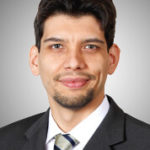
By Jose M. Pimiento, M.D.
We keep hearing that obesity is a problem in the US, we have also heard in the news that “obesity is an epidemic.” Sometimes, however, the actual numbers are more striking than the words.
The CDC reports that in the year 2000, 1 in 3 adults or 30% of the adult population in the U.S. were obese, while in the year 2018 the actual number of obese adults was 2 of 5 or about 40% of the adult population. Not only has the number of obese adults increased, but also the number of people with severe obesity, from 1 in 50 or 2 % in the year 2000 to almost 1 in 10 or 9% in 2018.
But should we worry about these numbers? The simple answer is yes. Obesity is associated with other health conditions such as type 2 diabetes, heart disease, strokes, some types of cancer, and is one of the leading causes of preventable deaths in the US.
Not knowing better, one could think that a small silver lining with obesity is that the obese adult is “protected” from malnutrition. Sadly, this is not the case. Although Obesity is a multifactorial problem, one underlying condition is the increased intake of dietary calories without following a balanced nutrient intake. This could be the result of consuming large quantities of highly processed foods with relatively poor content of micronutrients along with a general reduction in physical exercise.
Obese adults, especially the diabetic obese person, commonly present a list of micronutrient deficiencies. This list includes deficiencies in Vitamin A, B complex, C, D, E, Biotin, and minerals such as Chromium, Zinc, Iron, and Selenium to name a few. Malnutrition in the obese is also associated with significant muscle wasting or sarcopenia leading to poor functional status and poor exercise tolerance. In addition to all these problems, nutritional interventions intended to lose weight and to so called “regain health” such as restrictive diets can exacerbate these problems.
Understanding the factors leading to obesity and the nutritional and physiological challenges face by obese adults is, therefore, vital to empower all of us to take action. This action should incorporate balanced nutrition, exercise, adequate sleep, stress management and where appropriate, supplementation. Taking action is also easier when supervised by professionals in the nutritional field and supported by a social network that allow the person to generate sustainable change.
References:
- https://www.cdc.gov/obesity/data/adult.html
- Via M. The malnutrition of obesity: micronutrient deficiencies that promote diabetes. ISRN Endocrinol. 2012;2012:103472. doi:10.5402/2012/103472
- Astrup, A., Bügel, S. Micronutrient deficiency in the aetiology of obesity. Int J Obes34, 947–948 (2010). https://doi.org/10.1038/ijo.2010.81
- Damms-Machado, A., Weser, G. & Bischoff, S.C. Micronutrient deficiency in obese subjects undergoing low calorie diet. Nutr J11, 34 (2012). https://doi.org/10.1186/1475-2891-11-34
Dr. Jose M. Pimiento is a member of the AdvoCare Scientific and Medical Advisory Board and is compensated for his role. The above article is general health information and not intended or approved for the promotion of product. AdvoCare makes no association between disease states and product features outside those claims approved by the FDA. All changes in exercise and nutrition programs should be done in conjunction with your doctor’s recommendations.

Jose M. Pimiento M.D., FACS
- Assistant Member Gastrointestinal Oncology Moffitt Cancer Center and Assistant Professor Morsani College of Medicine University of South Florida
- Former Medical Director Surgical Oncology, Lacks Cancer Center/Mercy Health
Organizations
- American College of Surgeons
- American Society of Enteral and Parenteral nutrition; Association of Academic Surgeons
Honors
- Conquer Cancer Foundation of the American Society of Clinical Oncology (ASCO)
- GI Merit Award 2012; Fellow of the American College of surgeon
Published Works
- More than 30 scientific publications and book chapters in nutrition, surgery and surgical oncology
Education
- M.D from the Universidad Nacional de Colombia, Bogota, Colombia
- Surgeon from Saint Mary's Health System - Yale University affiliate
- Surgical Oncologist from the H. Lee Moffitt Cancer Center




